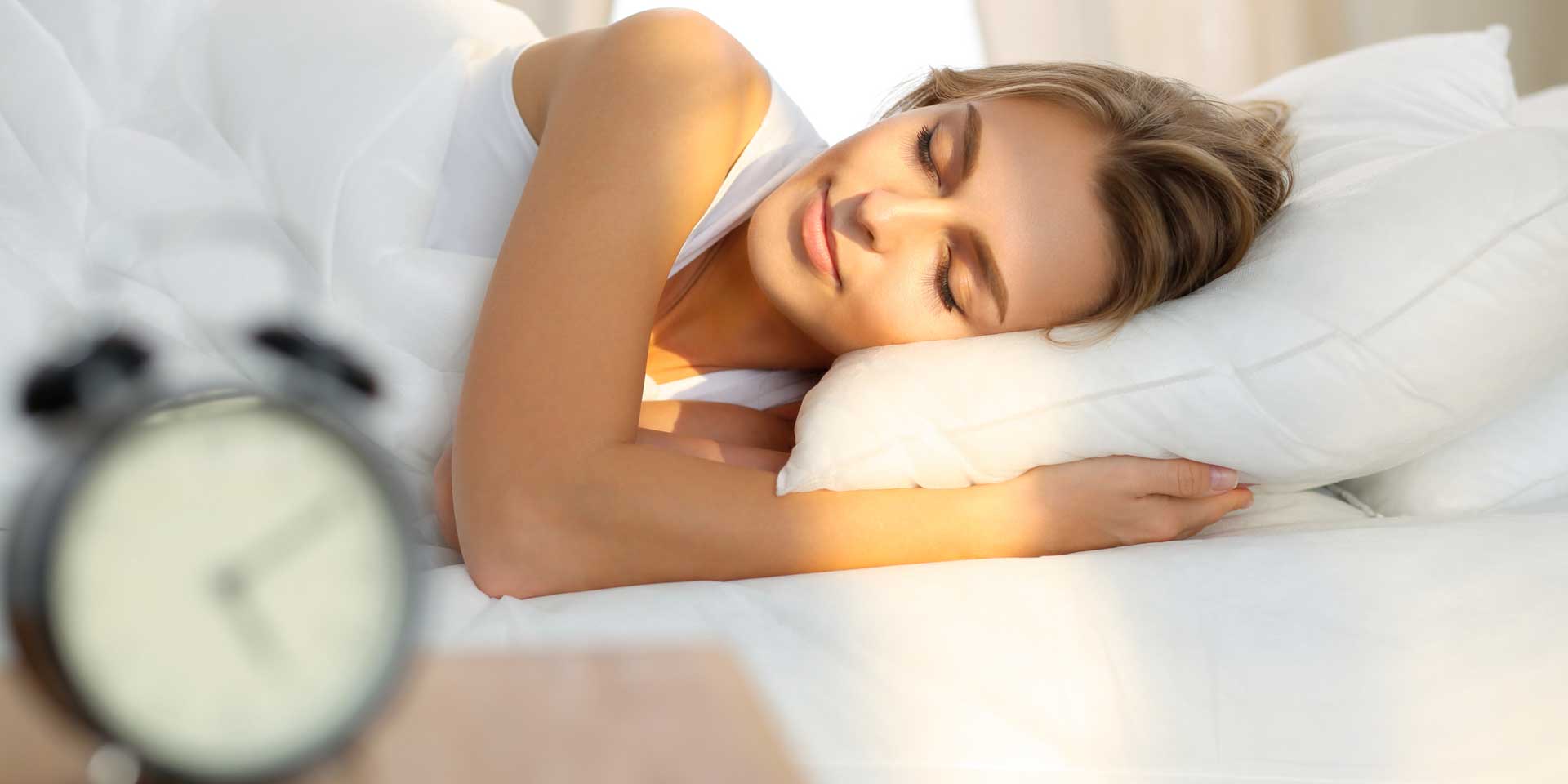Sleep is perhaps the most important, complicated, and misunderstood physiological mechanism that keeps us alive.
Underestimated for most of history, with the industrial revolution and the transition to electric lighting, a lack of sleep became an increasingly bigger problem. This dearth of sleep has led to the development of an entire industry of drugs, supplements, Zen apps, smart watches, and self-help books to help us make up for the lost sleep hours. However, more importantly than making up for the lost hours is understanding why we cannot afford to lose them in the first place.
The National Sleep Foundation in the United States says an adult should sleep between 7 and 9 hours per night. If you sleep less or more, you risk becoming a danger to yourself and those around you. Studies have shown that a period of 20 hours without sleep has the same debilitating effect on our reasoning and reaction times as drinking a whole bottle of wine. Two weeks of 6 hours of sleep a night have the same effect on the brain as two consecutive sleepless nights. If this becomes a habit, the risk of premature death can be increased by 13%.
The importance of sleep for the body
A single night of more than 8 hours of sleep after several nights of poor rest is enough to notice a positive impact. However, people who make a habit out of sleeping more than their age requires, suffer from the same negative effects on their cognitive capacities as those who sleep too little. According to some studies, too much sleep causes the brain to age by 2 years, thus increasing the risk of dementia.
It can be argued that neglecting our need to sleep is a sign of the times. There have been different sleeping patterns throughout history, from Catholics who had to pray every 3 hours starting at 3 am, to the practice of sleeping sitting up observed in various countries. But researchers like Charles Czeislei, the head of the Sleep Disorders Division in the Brigham Women Hospital, and Meir Kryger, doctor and professor at Yale University, have concluded that the most dramatic changes in our sleeping patterns have taken place in the last 150 years.
In the last 50 years alone, the average sleep duration decreased by one and a half hours, and not just for adults. Work accidents and the lack of productivity caused by sleep deprivation cost the US $18 billion a year, and 1.2 billion road accidents (20% of the total) can be blamed on tired drivers.
In general, it has been noted that those who live in rich countries are the most well-rested, suggesting that a good night’s sleep has become something of luxury. Exceptions to this rule are the tiger economies of Asia, like South Korea or Japan, where people go to bed on average at 1 in the morning, and Arab countries, where people get up early for their morning prayers. In an extremely frantic world, sleep has become a status symbol, a sign of prosperity and control, the Times has noted. The fact that the 2017 Nobel Prize in Medicine was awarded for discovering the genes responsible for regulating the circadian rhythm is a confirmation of the importance that the subject has recently acquired.
The effects of sleep deprivation
Meir Kryger, writes in his book The Mystery of Sleep that, despite the thousands of experiments conducted for studying sleep, nobody can explain why all forms of life need sleep. We can only observe that sleep deprivation eventually leads to death.[1]
Some of the reasons suggested for why we need to sleep are to detoxify the brain of the “waste” produced by our neurons, preserve energy, repair damaged tissues, and restore primary physiological functions. Sleep serves many important functions, and each sleep stage serves a particular need. That is why it is important to go through all the various sleep stages in order to say we slept well. The quantity of sleep, as well as its quality, contributes not only to the proper functioning of the body, but also directly influences the way we feel, our general mood.
Unfortunately, “most of us are operating at suboptimal levels basically always”, says neurologist Josna Adusumilli, expert in sleep disorders at Harvard University. Between 50 and 70 million Americans suffer from chronic sleep disorders. In the short term, sleep deficiency has a significant impact on performance—our perception and motor functions are affected, but also on emotional control—the connection between the prefrontal cortex and the amygdala suffers, which makes us more impulsive and predisposed to depression. In short, our ability to think and make good decisions is affected. It’s much harder to study, think analytically, memorise, and the rate of attention-related errors and accidents increases. 
Equally concerning are the long term effects on health. Lack of sleep or sleep excess as a habit predisposes us to certain major health risks. In general, sleep deprivation leads to metabolic and endocrine problems, including weight gain, impacting the increase in diabetes risk and cardiovascular diseases. However, a study conducted on 71 000 nurses over the course of 5 years, showed that while the risk of cardiovascular diseases went up by 45% for the nurses who slept only 5 hours per night, in the case of those who slept between 9 and 11 hours the risk increased by 38%[2]. This shows that sleep should not become a randomly exercised habit.
Another long term effect of sleep deprivation is the destabilisation of immune functions and a high risk of numerous types of cancer. Matthew Walker, neurologist and director of the Center for Human Sleep Science from the University of California, writes in his book Why We Sleep that the “silent sleep-loss epidemic” in industrialised societies has “catastrophic” effects due to its impact on the immune system. “After just one night of only four or five hours’ sleep, your natural killer cells—the ones that attack the cancer cells that appear in your body every day—drop by 70%”, Walker says. This would also be the reason why the World Health Organization classified any form of work in the night shift as a probable carcinogen.
How do you know if you slept well?
A 2011 survey done in a number of European countries shows that a third of Europeans suffered from a mental disorder, the most frequent of these being anxiety and depression. This percentage mostly coincided with people suffering from insomnia. The connection between insomnia and depression is obvious, Kryger says. Around 75% of the patients diagnosed with depression also suffered from insomnia[3]. In general, generalized depression or anxiety causes sleep problems and insomnia, not the other way around. Only a very small percentage of the global population suffers from what the doctors call “primary insomnia”, the causes of which are unknown and which is present since birth or childhood.
Regardless of our own circadian rhythm or sleep position, it is important that we all can recognise a healthy sleeping pattern. A good night’s sleep depends both on quantity – sleeping the necessary number of hours for your age, and quality – our sleep should be uninterrupted and must go through all sleep stages. Kryger explains that after a good night’s sleep we should be alert after waking up and stay that way for the rest of the day. We should have a good general mood and not feel in need of brief naps.
Under no circumstance should we feel like we haven’t slept all night, or that we will not be able to function without one or more cups of coffee. We should not fall asleep while reading or have uncontrolled movements, like tapping our leg, when we need to pay attention for long periods of time, in meetings or at the cinema. All these signs indicate the fact that we did not sleep long or well enough to be able to function at an optimal level during the day.
We can, however, only say that we suffer from insomnia when we repeatedly experience at least one of the following symptoms: we cannot fall asleep, we cannot maintain sleep, or we wake up much earlier than we should without being disturbed by external factors. Insomnia is rarely a disease in itself, but rather a symptom of another medical problem, generally a mental disorder, but also heart, lungs, or kidney problems. For women, insomnia mostly occurs during menopause but also during other major hormonal transitions, during or after pregnancy. Last but not least, insomnia may be a side effect of certain drugs. Insomnia should be taken seriously, because it may lead to the functional deterioration of the body over time, depending on its intensity and the other medical problems associated with it. Insomnia does not resolve itself if we do not treat the disease causing it.
Treating insomnia with sleeping pills is one of the first solutions people resort to, but this should only be an emergency solution. Drug-induced sleep is different from regular sleep, and, most of the time, is of a poorer quality. No medicine on the market can perfectly imitate natural sleep progression. Many drugs suppress certain sleep stages, along with the recovery effects they have on the human body. Often when we take sleeping pills we wake up extremely tired and lacking vitality.
Sleep hygiene
Ironically, Charles Czeisler showed that people are aware of the impact of sleep deprivation on their own performance for the first couple of days, but after this period they no longer realise how far short of their optimal level they are falling, and believe they can function very well with just 5-6 hours of sleep per night. Therefore, most of us do not even want to make up for our lost sleep when we do have the time, thinking that “we’ll sleep when we’re dead”. The only problem is, sleep deprivation actually causes early death.
What we can change to prevent this scenario is our environment. Researchers say that “sleep hygiene” is the most effective way to solve our sleep problems which are not based on a chronic illness but are a direct consequence of life’s quick rhythm, stress, exposure to information, and digital screens. Some of the elements of sleep hygiene are good practices for disease prevention. Nicotine, caffeine and alcohol all have a negative impact on sleep. The closer these are consumed to bedtime the worse their effects. What helps us sleep well is physical exercise and eating at regular intervals. We get a counter effect if we exercise or eat close to our bedtime. Researchers at MIT proved that a consistent sleep schedule, observing the same bedtime and wake up hours, is a good predictor of quality sleep, and consequently, of high grades for university students. 
Perhaps the most important aspect of sleep hygiene has to do with light. The human eye has specific photoreceptors which only respond to changes in light, and function only to regulate our circadian rhythm. These receptors work even in the case of blind people, who can tell when it’s getting dark and when night-time approaches without being able to see. Due to artificial light, and especially the blue light used by most digital screens, this mechanism is disturbed. Blue light sends signals to the brain that it is still daytime and that one should not sleep.
Czeisler showed that, depending on the exposure to artificial light, our biological clock is deregulated as much as if we had crossed 6 time zones. In a study published in the PNAS journal, Czeisler conducted a comparative experiment between people who, for 5 days, read a traditional book 4 hours before bedtime and people who read from an e-book. The effects were profound. Those reading from the e-book disturbed their melatonin production, deregulating their circadian rhythm by an hour and a half, and thereby delaying sleep. Other experiments have demonstrated that even a 12 minute exposure to blue light has immediate effects on melatonin production. For this reason, it is recommended to completely avoid digital screens at least two hours before bedtime.
Last but not least, the issue of good sleep is one that depends on our priorities, Kryger says[4]. Nowadays, financial stress usually comes before one’s family life and health. At the same time, we have access to opportunities and services which can help us shape our lives depending on our plans and priorities. If our work schedule affects our health, we need to dare to change it. Of course, this is not easy, but we must be aware that in the long run, the deterioration of our health will generate financial instability and stress, which will, in turn, cause even more deterioration of our health. Until we get our lives and priorities straight, we will keep running around in vicious circles with a significant impact on both ourselves and our loved ones.

















